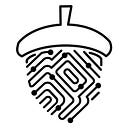My #TeensInAI19 Accelerator Experience — Aoife, 18
On the 19th of August I was able to be a part of the TeensInAI accelerator. I was able to learn a lot in the 10 days, gained new skills and had fun working with my team. On the first day we had some icebreaker games to get to know each other and we were put in our teams; I was with Alessio and Jai. We did a lot of design thinking during the first three days and focusing on what our project should be based on. After the first week we were still unsure about our topic but we learnt skills we would need to be able to develop it later on. In the meantime we had workshops, speakers and trips to enhance our understanding of how tech is used by different industries today. This included the problems with tech such as fake news and the ethics that is needed to prevent biased data being used.
We had the opportunity to listen to people speak from a range of professions and backgrounds. One of my favourite speakers was Moe Hashimi. He was very interactive and spoke about how our attitude and outlook on life can determine how we deal with situations. This was very motivational because it gave us a chance to reflect on how we have more control than we think when reacting to different events. Another speaker I enjoyed listening to was Diana Acosta, an aerospace engineer, who spoke about NASA and projects they worked such as the ‘Astrobee’. When I had the chance to speak to her personally I was able to find out about what it was like working there and some projects she had worked on. It was amazing to meet someone who had worked on projects with NASA and who had also been able to work in different fields of work. She had taken on management and engineering roles and showed me that you need a wide range of skills to bring a project along.
We also were able to visit different places and offices. One of the most interesting was the BBC. We were lucky enough to be given a workshop on fake news and a tour of the building showing us the many different roles people do. There were different groups focusing of different tasks and they were able to reach a large range of countries and provide news to people most relevant to them. Later in the week we also had the opportunity to listen to the BBC presenter George Alagiah. He told us how he got to where he was today and the problems he faced getting there. Speaking about how the places he visited and the impact they had on him was captivating. Furthermore, his passion to meet new people and get to know them on a personal level encouraged us to do the same; especially when researching the issues we were tackling. Since our group had already reached out to many people surrounding different topics we looked at, we also found his speech reassuring as we were doing the right thing by going out and speaking to real people.
An example of getting to know people more personally is when our group couldn’t decide what issue to solve. We looked at climate change with forest fires and pollution; however, homelessness was a topic we focused on for a while. With the help of mentors, Alessio and I went out into the streets of London and personally interview people who were homeless. We found this strange at first as we had never spoke to homeless people before and our other research had only been through online messaging. Despite our initial uncertainty we were able to find out a lot and carried the idea that the people experiencing the problem know the most about the issue into our future project ideas.
Eventually our team decided to tackle breast cancer diagnosis. The current process of diagnosing cancer can be painful and uncomfortable. We wanted to remove the most uncomfortable procedures out of the cycle: core and surgical biopsies. FNA biopsies are thinner needles than core biopsies and we believed that there was enough information in these sample to be able to determine if someone had cancer. Although it is difficult for humans to read these samples we believed that if we trained a model it would be able to read and FNA biopsy sample accurately. The model we created was able to complete a risk assessment and output the probability of someone having cancer based on the image that was inputted.
Since we had contacted different people throughout the two weeks we were able to keep in contact with them after our pitch as well. So far we have organised a trip to the institute of cancer research and a skype call and possible visit to NHS X to speak with different people who work there. We are still trying to get access to FNA biopsy samples but have spoken to people who might be able to help us.
Overall the accelerator helped me develop a variety of tech and soft skills. I really enjoyed working on the project and with my team and hope to keep working on it in the future. In addition I am also interested working in the field of cancer diagnosis after I have completed my computer science degree. Thank you to all the amazing mentors including Elena and Peter who made the accelerator possible and to everyone else who was involved as well!
By Aoife Power, 18
